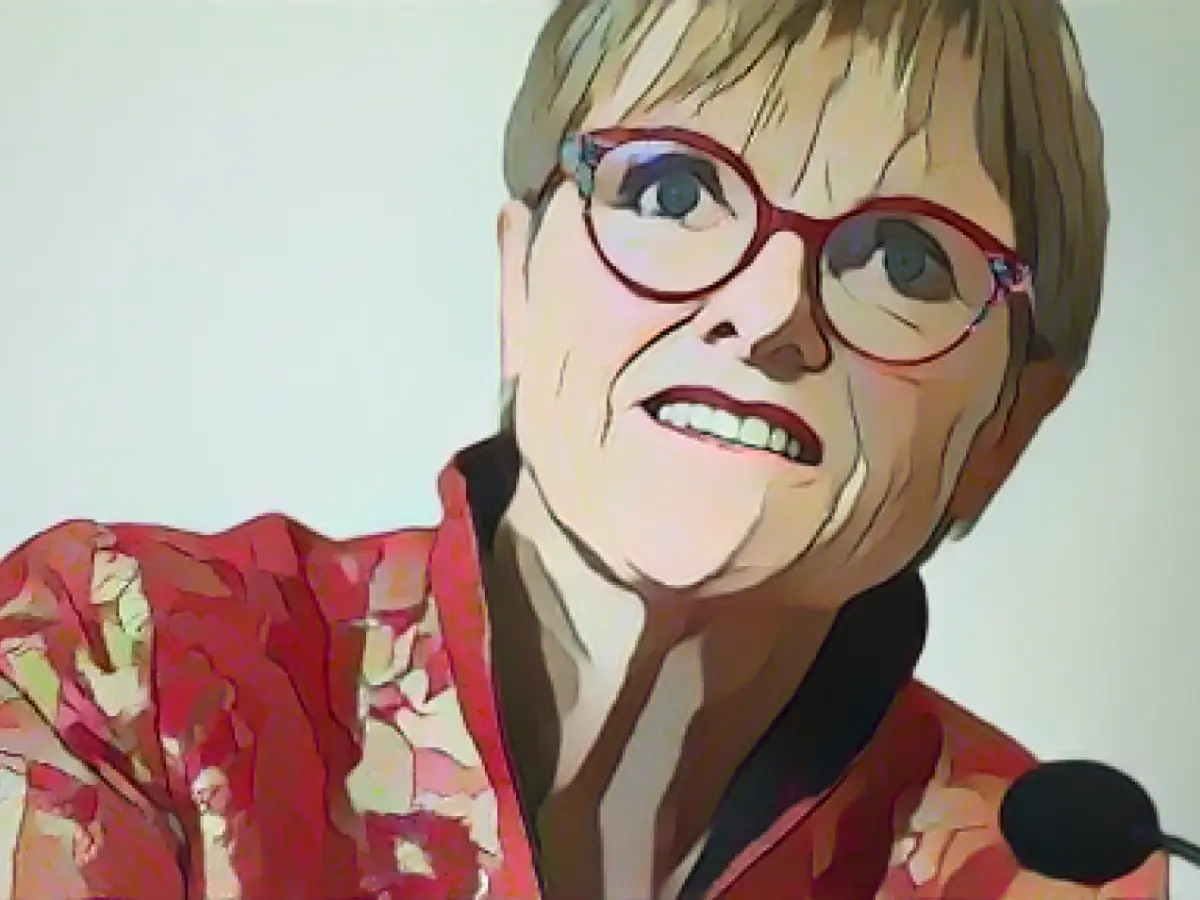Culture - Lorenz: 2024 will also be a political year for the Klassik Stiftung
In keeping with the upcoming election year, the Klassik Stiftung Weimar will be focusing on political issues. "The starting point was the election year 1924 and the shift to the right in the state government, which subsequently led to the Bauhaus being cut off as a democratic school experiment," said Foundation President Ulrike Lorenz in an interview with dpa. The decision was also made with a view to the state elections in Thuringia planned for the fall. "We will have a controversial election that will strongly reflect the social situation in the 20th century," said Lorenz.
The contradictions of the previous century are to be conveyed in a major annual exhibition on "Bauhaus and National Socialism". In the Bauhaus Museum, the Museum Neues Weimar and also the Schiller Museum, the exhibition will showcase the complex political history of the Bauhaus up until its closure in 1933 with around 450 art and design objects. "The fact that Thuringia became the model state for the National Socialist seizure of power at that time will also play a role," said Lorenz. The exhibition begins on 8 May, together with the opening of the new Forced Labor Museum of the Buchenwald and Mittelbau-Dora Memorials Foundation.
With regard to the exhibition theme, the art historian spoke of a dark, ambivalent chapter that has been little illuminated to date. The myth of the "good" Bauhaus, of the "anti-position" towards National Socialism, persists. However, the story is more complex.
The show deals with the Bauhaus in the 1920s. "It was always contested from the right and the left," emphasized Lorenz. However, the exhibition will also present the biographies of Bauhaus members under National Socialism. "You simply have to realize that the majority of them did not emigrate," said Lorenz. Instead, many teachers and students of the art and design school founded in Weimar in 1919 developed adaptation strategies in Germany.
Lorenz spoke of "sometimes highly dazzling biographies that reflect the entire complexity of the 20th century". She referred, for example, to Franz Ehrlich (1907 - 1984): As a communist in the anti-fascist resistance, the former Bauhaus student was sent to Buchenwald concentration camp near Weimar in 1937. As a prisoner, he was commissioned to design the inscription "To each his own" above the camp gate. Ehrlich based the design on the writings of his Bauhaus teacher and thus smuggled Bauhaus modernism, which was ostracized by the National Socialists as "degenerate art", into the degrading motto, as the Buchenwald Memorial website states. Even after his release in 1939, Ehrlich had to continue working for the SS construction management.
Outside of the museums, the Klassik Stiftung will be using Goethe quotes in Weimar next year, for example, to provide food for thought about what life in Thuringia should look like. "There are very different opinions on social issues, all of which are justified - as long as they don't run counter to our constitution," emphasized Lorenz.
The Klassik Stiftung is one of the largest cultural foundations in Germany. It looks after numerous museums, palaces, parks, literature and art collections. Twelve Unesco World Heritage Sites belong to it. Thematically, its work focuses primarily on classical Weimar and the poet princes Goethe and Schiller, as well as the legacy of the Bauhaus art and design school founded in Weimar.
Buchenwald Memorial about Franz Ehrlich Klassik Stiftung about the exhibition Bauhaus and National Socialism
Read also:
- A clan member is punished here
- Traffic lawyer warns: Don't talk to the police!
- Will he be convicted as Jutta's murderer after 37 years?
- He also wanted to kill his cousin
- Amidst the super election year of 2024, the Klassik Stiftung Weimar approaches their focus on political issues, drawing parallels to the election year of 1924 and the shifting political climate in Thuringia.
- The upcoming major annual exhibition, titled "Bauhaus and National Socialism," will delve into the complex political history of the Bauhaus, including Thuringia's role in the National Socialist seizure of power and the foundation's closure in 1933.
- As the new Forced Labor Museum of the Buchenwald and Mittelbau-Dora Memorials Foundation opens its doors alongside the exhibition, the dark and ambivalent chapter of Bauhaus in the context of National Socialism will be illuminated, challenging the persistent myth of the "good" Bauhaus.
- In the exhibit, the biographies of Bauhaus members under National Socialism will be presented, highlighting the fact that many teachers and students adapted to the restrictive environment in Germany rather than emigrating.
- A compelling example of this adaptation can be seen in Franz Ehrlich, a former Bauhaus student who, as a communist resistance fighter, was sent to the Buchenwald concentration camp in 1937. Ehrlich used his talents as a designer to inscribe the words "To each his own" above the camp gate, spreading Bauhaus modernism and subtly criticizing National Socialism.
- To provide context outside of the museums, the Klassik Stiftung plans to utilize Goethe quotes in Weimar during the election year, fostering discussions about societal issues and the importance of respecting the German constitution.
Source: www.stern.de








